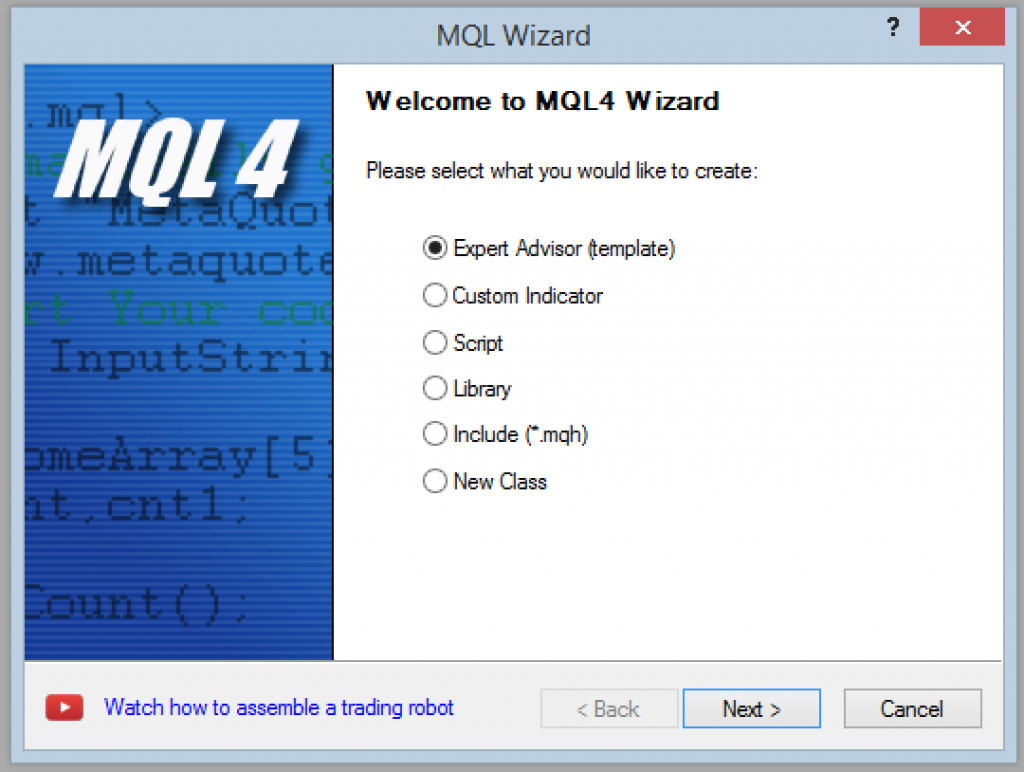
Online stock trading is a great way to make smart investments. With the help of a broker, you can easily purchase shares of various companies and diversify your investments. You can achieve your investment goals by investing in food, travel and technology as well as banking and other companies. Avoid putting all your eggs into one basket. Here are some options to buy and trade stocks online securely.
Invest in your Knowledge
Investing in your knowledge is essential if you are planning to buy and sell stocks. You can succeed whether you are an experienced investor, or a novice. First, understand the stock market. There are many stock market markets around the world. It is important to understand each one. If you want a profitable stock market investment, choosing the right company to invest in is key.

Finding stocks that fit your investment goals
Before you start investing, define your investment goals. These goals should be separated by time frame, with short-term goals likely to relate only to events that occur within the next few months. You should concentrate on long-term investing to help you achieve your long-term goals. You might save money for your child's college education if your short term goal is to purchase a house.
Selecting an online stockbroker
When you are looking for an online stockbroker, be aware of the fees you'll pay. Some brokers charge transaction fees while others do not. Trading and investment fees are included as well as non-trading activity fees. You also need to consider whether you want high-level guidance or more independence. Also, think about whether or not you need a demo account to get started. It is also worth asking if there are minimum investments.
Get a stock quote in real time
It is essential that you get a stock quote in real time when buying and selling stocks online. Because prices change so rapidly, they can be difficult to find the right price. You should have the most current information about the price if you are buying stock to invest in. A delayed stock quote is worthless in such fast markets. Although it is nice to have an updated stock quote, you will never be able to access the same information as a live one.

Calculating the price of selling and buying stocks online
If you are new to stock investing, you may be wondering how to calculate the cost of buying and selling stocks online. A stock calculator can help you calculate the potential profit or loss from selling and buying stocks. These calculators will help you calculate your break-even share price as well as the return on investment. Once you understand how to calculate the costs of buying and selling stocks, you can start making smart decisions to maximize your profits.
FAQ
How do you choose the right investment company for me?
You should look for one that offers competitive fees, high-quality management, and a diversified portfolio. Fees are typically charged based on the type of security held in your account. Some companies have no charges for holding cash. Others charge a flat fee each year, regardless how much you deposit. Others charge a percentage based on your total assets.
It is also important to find out their performance history. Poor track records may mean that a company is not suitable for you. Avoid low net asset value and volatile NAV companies.
It is also important to examine their investment philosophy. In order to get higher returns, an investment company must be willing to take more risks. They may not be able meet your expectations if they refuse to take risks.
What is a REIT?
An REIT (real estate investment trust) is an entity that has income-producing properties, such as apartments, shopping centers, office building, hotels, and industrial parks. These companies are publicly traded and pay dividends to shareholders, instead of paying corporate tax.
They are similar in nature to corporations except that they do not own any goods but property.
Stock marketable security or not?
Stock is an investment vehicle where you can buy shares of companies to make money. This is done through a brokerage that sells stocks and bonds.
You could also choose to invest in individual stocks or mutual funds. In fact, there are more than 50,000 mutual fund options out there.
The main difference between these two methods is the way you make money. Direct investments are income earned from dividends paid to the company. Stock trading involves actually trading stocks and bonds in order for profits.
Both of these cases are a purchase of ownership in a business. But, you can become a shareholder by purchasing a portion of a company. This allows you to receive dividends according to how much the company makes.
Stock trading offers two options: you can short-sell (borrow) shares of stock to try and get a lower price or you can stay long-term with the shares in hopes that the value will increase.
There are three types: put, call, and exchange-traded. Call and put options allow you to purchase or sell a stock at a fixed price within a time limit. ETFs, which track a collection of stocks, are very similar to mutual funds.
Stock trading is a popular way for investors to be involved in the growth of their company without having daily operations.
Stock trading can be very rewarding, even though it requires a lot planning and careful study. If you decide to pursue this career path, you'll need to learn the basics of finance, accounting, and economics.
What is the main difference between the stock exchange and the securities marketplace?
The whole set of companies that trade shares on an exchange is called the securities market. This includes stocks, bonds, options, futures contracts, and other financial instruments. Stock markets are usually divided into two categories: primary and secondary. Stock markets are divided into two categories: primary and secondary. Secondary stock market are smaller exchanges that allow private investors to trade. These include OTC Bulletin Board Over-the-Counter and Pink Sheets as well as the Nasdaq smallCap Market.
Stock markets are important for their ability to allow individuals to purchase and sell shares of businesses. The value of shares depends on their price. When a company goes public, it issues new shares to the general public. These shares are issued to investors who receive dividends. Dividends can be described as payments made by corporations to shareholders.
In addition to providing a place for buyers and sellers, stock markets also serve as a tool for corporate governance. Shareholders elect boards of directors that oversee management. Boards ensure that managers use ethical business practices. If a board fails to perform this function, the government may step in and replace the board.
How are share prices established?
Investors are seeking a return of their investment and set the share prices. They want to make money with the company. So they purchase shares at a set price. If the share price increases, the investor makes more money. The investor loses money if the share prices fall.
The main aim of an investor is to make as much money as possible. They invest in companies to achieve this goal. They are able to make lots of cash.
Why is a stock called security.
Security is an investment instrument that's value depends on another company. It may be issued by a corporation (e.g., shares), government (e.g., bonds), or other entity (e.g., preferred stocks). The issuer promises to pay dividends and repay debt obligations to creditors. Investors may also be entitled to capital return if the value of the underlying asset falls.
How do I invest my money in the stock markets?
Brokers allow you to buy or sell securities. A broker sells or buys securities for clients. When you trade securities, brokerage commissions are paid.
Brokers often charge higher fees than banks. Banks offer better rates than brokers because they don’t make any money from selling securities.
An account must be opened with a broker or bank if you plan to invest in stock.
A broker will inform you of the cost to purchase or sell securities. The size of each transaction will determine how much he charges.
Ask your broker about:
-
The minimum amount you need to deposit in order to trade
-
How much additional charges will apply if you close your account before the expiration date
-
What happens when you lose more $5,000 in a day?
-
How many days can you maintain positions without paying taxes
-
How much you are allowed to borrow against your portfolio
-
How you can transfer funds from one account to another
-
How long it takes to settle transactions
-
The best way buy or sell securities
-
How to Avoid Fraud
-
How to get help when you need it
-
whether you can stop trading at any time
-
What trades must you report to the government
-
If you have to file reports with SEC
-
How important it is to keep track of transactions
-
Whether you are required by the SEC to register
-
What is registration?
-
What does it mean for me?
-
Who must be registered
-
What time do I need register?
Statistics
- Even if you find talent for trading stocks, allocating more than 10% of your portfolio to an individual stock can expose your savings to too much volatility. (nerdwallet.com)
- Our focus on Main Street investors reflects the fact that American households own $38 trillion worth of equities, more than 59 percent of the U.S. equity market either directly or indirectly through mutual funds, retirement accounts, and other investments. (sec.gov)
- Ratchet down that 10% if you don't yet have a healthy emergency fund and 10% to 15% of your income funneled into a retirement savings account. (nerdwallet.com)
- Individuals with very limited financial experience are either terrified by horror stories of average investors losing 50% of their portfolio value or are beguiled by "hot tips" that bear the promise of huge rewards but seldom pay off. (investopedia.com)
External Links
How To
How to open and manage a trading account
Opening a brokerage account is the first step. There are many brokers that provide different services. There are many brokers that charge fees and others that don't. Etrade is the most well-known brokerage.
After opening your account, decide the type you want. These are the options you should choose:
-
Individual Retirement accounts (IRAs)
-
Roth Individual Retirement Accounts (RIRAs)
-
401(k)s
-
403(b)s
-
SIMPLE IRAs
-
SEP IRAs
-
SIMPLE 401 (k)s
Each option has its own benefits. IRA accounts are more complicated than other options, but have more tax benefits. Roth IRAs allow investors deductions from their taxable income. However, they can't be used to withdraw funds. SIMPLE IRAs and SEP IRAs can both be funded using employer matching money. SIMPLE IRAs are simple to set-up and very easy to use. Employers can contribute pre-tax dollars to SIMPLE IRAs and they will match the contributions.
Next, decide how much money to invest. This is known as your initial deposit. Most brokers will give you a range of deposits based on your desired return. Depending on the rate of return you desire, you might be offered $5,000 to $10,000. This range includes a conservative approach and a risky one.
After choosing the type of account that you would like, decide how much money. Each broker has minimum amounts that you must invest. These minimums can differ between brokers so it is important to confirm with each one.
Once you have decided on the type of account you would like and how much money you wish to invest, it is time to choose a broker. Before you choose a broker, consider the following:
-
Fees – Make sure the fee structure is clear and affordable. Brokers often try to conceal fees by offering rebates and free trades. However, some brokers actually increase their fees after you make your first trade. Be cautious of brokers who try to scam you into paying additional fees.
-
Customer service: Look out for customer service representatives with knowledge about the product and who can answer questions quickly.
-
Security - Select a broker with multi-signature technology for two-factor authentication.
-
Mobile apps - Make sure you check if your broker has mobile apps that allow you to access your portfolio from anywhere with your smartphone.
-
Social media presence. Find out whether the broker has a strong social media presence. If they don't, then it might be time to move on.
-
Technology - Does it use cutting-edge technology Is the trading platform user-friendly? Is there any difficulty using the trading platform?
After you have chosen a broker, sign up for an account. Some brokers offer free trials. Other brokers charge a small fee for you to get started. You will need to confirm your phone number, email address and password after signing up. Next, you'll need to confirm your email address, phone number, and password. You'll need to provide proof of identity to verify your identity.
After your verification, you will receive emails from the new brokerage firm. These emails contain important information about you account and it is important that you carefully read them. These emails will inform you about the assets that you can sell and which types of transactions you have available. You also learn the fees involved. Be sure to keep track any special promotions that your broker sends. These may include contests or referral bonuses.
The next step is to create an online bank account. An online account can be opened through TradeStation or Interactive Brokers. Both websites are great resources for beginners. You'll need to fill out your name, address, phone number and email address when opening an account. Once this information is submitted, you'll receive an activation code. Use this code to log onto your account and complete the process.
Now that you've opened an account, you can start investing!